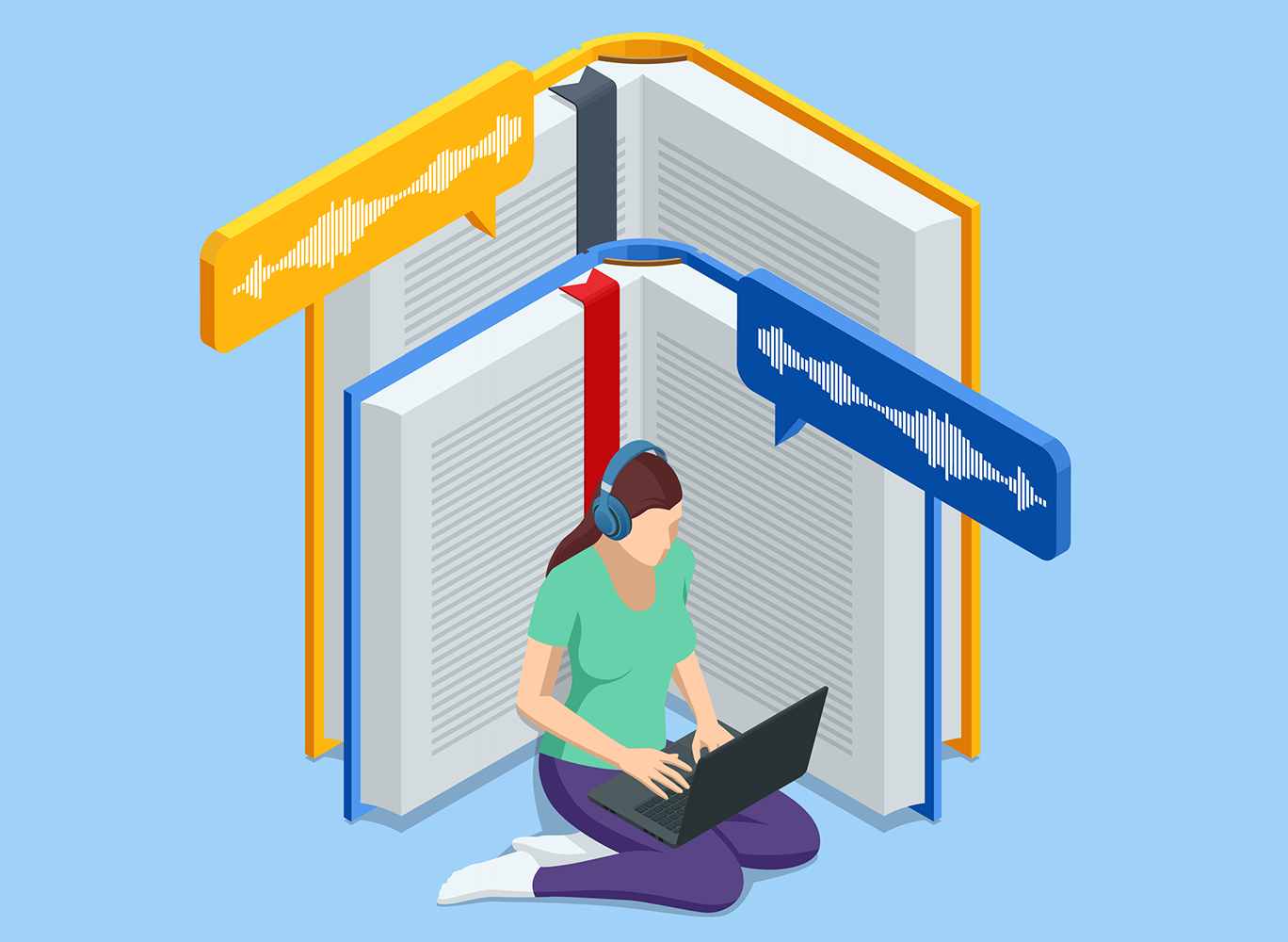Self-learning can be a great solution to your problems.
Many of us may have been interested in becoming the best version of ourselves by following through on our New Year’s resolutions or improving our tactics to reach goals for the current school year. We may have been interested in learning new things or forming healthy habits. However, the year has progressed, and many resolutions might seem unrealistic or hopelessly impossible. For example, to run a marathon, our desire to do it is insufficient; it requires time, practice, dedication, and knowledge.
The same goes for other skills, whether speaking a new language, playing a musical instrument, or painting in watercolor: To arrive at the final product requires a range of steps with progressive learning, where constant practice is essential.
Undoubtedly, the simplest thing would be to attend a class where an expert can help us develop the skills and knowledge we want, but financial, time, or administrative restrictions may make this option unavailable for many people.
For this reason, self-paced learning emerges as a solution, especially now that the knowledge of humanity is at our fingertips. However, what does being a self-taught person signify?
Self-Teaching: The best way to achieve your goals
Self-taught learning is education unguided by a teacher or institution. Self-teaching individuals choose the subjects, materials, and times of study, thus becoming the administrators of their learning. Self-instruction is possible through different media, such as reading, research, practice, and independent work. It allows the learner to focus on specific topics of interest.
Autodidacticism is problematic because it requires organizational skills, critical thinking, and simplified concepts. So, self-taught people pursue their curiosity to create unique learning experiences and progress at their own pace.
At the same time, autodidactism can energize or at least stop feelings of passivity and burnout. Creating your daily learning routines allows you to take control of your growth because “knowing how to educate yourself gives you a significant advantage.”
So says Dustin Wax, who explains that people who self-teach have three primary characteristics:
- Curiosity: This implies that you like to know the world and seek to learn new things.
- Patience: This helps you avoid frustration, as learning something new can be long and complicated. On the other hand, patience allows you to take the time necessary to dose the information.
- Determine how to connect new knowledge to what you already know: Understanding complex concepts becomes more manageable if you can identify how they relate to what you already understand.
Self-learning in the Information Age
In this information age, it is necessary to accept that traditional education is not for everyone. It does not consider the abilities and interests of the students; the dissemination of knowledge focuses on theory and repetition rather than on applying what has been learned.
Moreover, class times and locations may not be ideal for some people. Nowadays, many options exist for people who want to learn because online education facilitates access to various courses. Still, many online education programs involve highly active student participation, so self-teaching becomes necessary.
How to be self-taught?
While there is no magic recipe for being self-teaching, the following considerations are necessary:
- Have clear goals: What do you want to achieve? Your answer will indicate the steps to follow to attain your goals. Studying a second language for a trip is not the same as studying a second language to use at work. Your objectives should be realistic.
- Find gradual sources of knowledge: It is important to start with the basics. Don’t attempt to paint in watercolor if you don’t even know the correct type of paper for this medium. (Believe me, I made this mistake.)
- Organize your lessons and the way forward: Always start from less and progress to more. The best thing about being self-taught is that you control the pace.
- Set short-, medium-, and long-term goals: having different times for different goals throughout your learning ensures the final goal becomes attainable.
- Document your learning process: A very lengthy process can frustrate you. Seeing your progress helps you feel you are on track.
Self-instruction requires discipline and orderliness, which is why, besides the different time-management techniques and applications for organizing yourself better, other recommendations help you to achieve your goals:
- Perform your learning routine in quiet, distraction-free places.
- Set a schedule and stick to it.
- Don’t forget to rest and take regular breaks to keep your energy up.
- Acknowledge your progress and celebrate it.
- Don’t be afraid to seek help when you don’t understand something.
Advantages of being self-taught
Being self-taught brings many benefits. A few are:
- Know yourself: You can develop patience and discipline by being in charge of your learning process and setting your own boundaries.
- Better frustration management: Making mistakes and learning from them can strengthen your resilience and help you manage your frustration.
- New growth opportunities: All the skills and knowledge we develop can open doors to new job or development opportunities.
- Better confidence and self-esteem: The skills you acquire can help you solve various problems, which promotes self-confidence.
- Improves your social skills: It makes you feel more comfortable in unfamiliar situations.
Did you know that Steve Irwin never went to college and learned everything he knew about biology and zoology independently? He is a great example to remember as we do what we are passionate about.
Although self-teaching can give us an advantage in the work world, we must consider that monetizing all the learning and hobbies in our lives is unnecessary. Learning for the sake of knowing is also valid.
You can take ownership of your learning
Forming habits and acquiring skills do not happen overnight. You must be patient with yourself and understand that before reaching the goal, you must travel a path that will not always be easy.
Being a self-taught person is a life skill, which is why teachers have a responsibility to help their students become independent and recognize that they are not the primary source of knowledge. There are always new things to learn, and technology puts all the information you need at your fingertips. Don’t be afraid to take control. Dare to learn something new today!
Believe me when I say that being self-taught has never been as easy as it is now.
Translation by Daniel Wetta
This article from Observatory of the Institute for the Future of Education may be shared under the terms of the license CC BY-NC-SA 4.0 
)
)


)